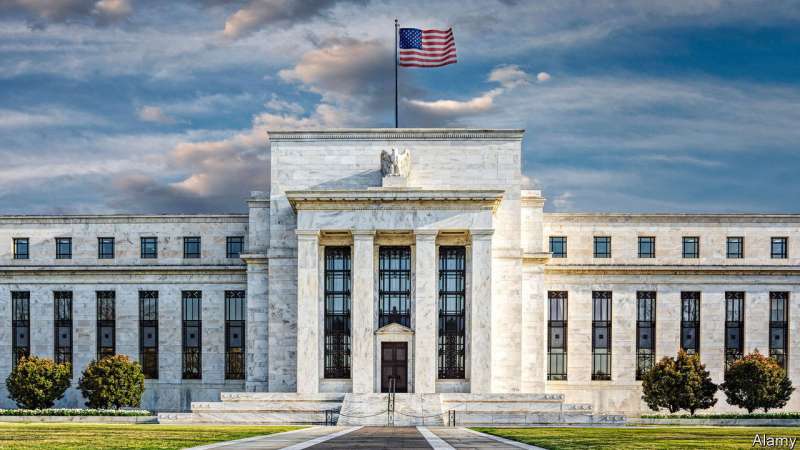
Date: Wed, 22nd April 2020
Author: By Bloomberg
Source: businesstimes.com
CENTRAL-bank balance sheets are hitting record levels amid recent buying spree, bringing up questions on success rates with markets and if they could ever be sold back into them, afterwards.
Torsten Slok, Deutsche Bank's chief economist reported, "The amounts being purchased are enormous, and it just tells you how much support is needed when the economy is closed down." "Just have a look at how long it took to unwind from the financial crisis of 2008 and 2009. Now we are adding at a pace that multiples faster."
A Bloomberg Economics analysis stated, the central banks in the Group of Seven countries purchased US$1.4 trillion of financial assets in March, five times as much as the past monthly record set in April 2009.
Morgan Stanley analysts estimate that the Federal Reserve, European Central Bank (ECB), Bank of Japan (BOJ) and Bank of England will expand their balance sheets by a cumulative US$6.8 trillion when all is in completion.
In the week till April 15, The Fed has expanded its balance sheet at a pace of about US$41 billion per day, leading the charge by offering to buy unlimited amounts of US government bonds and mortgage-backed securities.
Central bankers in the euro area, Japan and the UK have ramped up on buying. Canada, New Zealand and Australia have also embarked on large-scale purchases for the first time, joining Switzerland and Sweden among the smaller economies to do so. It is being rumoured that emerging markets like Thailand are also getting in on the game.
In upcoming months, as market liquidity is replenished, monetary authorities will shift their focus to the long haul of keeping borrowing costs low. This would facilitate recovery making. It would be easier for governments to fund their budgets too. Although this may involve a slower pace of asset purchases and not mark a reversal, it allows the roll over of great balance sheet expansions.
At present, the BOJ's balance sheet is 604 trillion yen (S$8.04 trillion) - more than the nation's annual economic output. The Fed, at US$6.4 trillion or roughly 30 per cent of gross domestic product, seemingly humble by comparison; the ECB figure is about 39 per cent.
The Fed stated it will buy ETFs under new temporary corporate credit purchase programmes - including some junk debt. If volatility in credit markets remains relatively low, it may not be inclined to buy much.
"For now, both the Fed and the ECB will continue to ramp up their buying," expressed Yoshinori Shigemi, a global market strategist for JPMorgan Asset Management Japan in Tokyo; but they will not get anywhere near Japan's levels. "If the market eventually starts calming down, they don't need to force themselves to buy more."
When "quantitative easing" (QE) programmes swept up much of the developed world after the financial crisis, critics cautioned of unforeseeable consequences such as runaway inflation and moral hazard for financial institutions, and even governments having fewer reasons to balance the books. Policymakers are grappling with one of the darkest economic outlooks since the Great Depression.
So far, the buying has helped stabilise financial markets, shedding light on an endless criticism levied against central bankers: their actions ensure swift relief for investors, while working people dependent on labour income will need to wait for the help to trickle down.
With time, the balance sheets of monetary authorities will remain pumped up and benchmark interest rates will stay low for the foreseeable future. With reference to past experiences, they will need to tread lightly as they slow purchases, let alone reverse them.
This time, with additional assets on more and more monetary authorities' ledgers, the prospect of any rapid sell-down seems distant.
Keyword : sterlinghousetrust.com, Sterling House Trust, SHT
Sterling House Trust is a private trust with a difference. It offers its members an exclusive and reliable platform to access unique opportunities and lifestyle services reserved for the select few. With its team of professional managers Sterling House Trust constantly scans the markets and collaborate with reliable global partners to create a portfolio of carefully curated programmes for its members. Members can access these programmes according to their individual needs, interest and financial capacity. Sterling House Trust is headquartered in Auckland, New Zealand, and has operations based in London, UK.
The Sterling House Trust platform was established with the objective of providing its members, secure access to opportunities across a range of global locations, sectors and services.

Our unique Platform was established within the framework of a trust so that the trust would have oversight and governance over the range of services and its quality. Member protection is a core principle and drive in all that we do. Our trustees ensures that the interests and quality of service provided by the Platform are always maintained at the highest standards.
The trust and its trustees provide robust oversight and is constantly on the move to identify and shortlist select opportunities in the international markets. Likewise, we apply the same stringent standards in identifying and selecting providers and professional partners to join our Platform.
The Sterling House Trust Platform utilises our international footfall and relationships to provide our members with access to a range of international opportunities via our global network which covers a broad range of sectors including:
Asset protection, international property ownership and management, alternative and direct ownership, estate planning, banking services, foreign exchange, card services, alternative investment and lifestyle services.

New Zealand Head Office
31/335 Lincoln Road,
Addington
Christchurch
New Zealand
London Office
14-16 Dowgate Hill,
London,
England EC4R 2SU